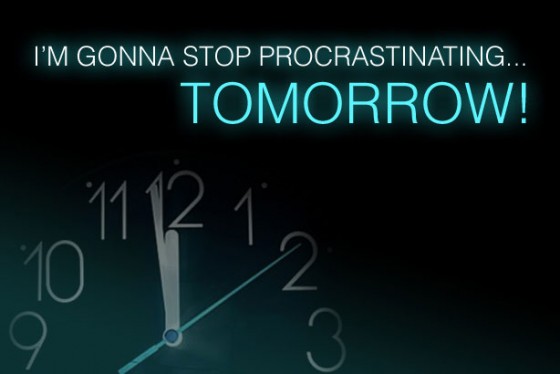Procrastination

I must confess that I am a bit of a procrastinator when it comes to writing my monthly feature articles for Business2Business Magazines. It appears that I am not the only one with this characteristic.
My clients think about leaving their businesses all the time, but procrastinate about actually doing something to prepare for that exit. My clients are hard-working, industrious business owners. They don’t procrastinate about everything. They are not reluctant to plan a vacation or plan to go to an Eagles game, or plan to go out to dinner. How can I get them to plan for their business exits?
An estate planning lawyer also commiserates that her clients are tremendous procrastinators. They know the following:
(1) They need to plan their estates.
(2) They will die someday.
(3) They don’t want to leave their affairs disordered.
Yet they are still reluctant to plan for the inevitable. Interestingly, she reports that sometimes the prospect of foreign travel will spur her clients into action. I have observed that a minor medical emergency – say a mild heart attack – can cause my clients to focus intently on planning their business exit. But need it require the near prospect of disaster to motivate us to plan for the inevitable?
What the “Experts” Think.
Some popular psychology discusses procrastination in terms of task avoidance. One way to view task avoidance is “delay discounting”. We value getting the job done, but not necessarily getting it done “now”.
Timothy Psychyl (a psychology professor at Carleton University in Ottawa – no, I didn’t make up that name!) has a different twist that might be more relevant. Psychyl (as recounted in The Washington Post, April 27, 2016) refers us to an episode of “The Simpsons” in which Marge scolds her husband Homer for not spending enough time with the kids. “Someday, these kids will be out of the house, and you’ll regret not spending more time with them,” she says. “That’s a problem for future Homer. Man, I don’t envy that guy,” Homer says, while pouring vodka into a mayonnaise jar and then downing the concoction before collapsing on the floor.
I think Homer puts his finger on the problem – it’s not so much “delay discounting” or even instant gratification; Homer distinguishes between his “present self” and his “future self” and clearly doesn’t want to be bothered about the future Homer. Psychyl’s research suggests that those who were more “in touch” with their future selves reported fewer procrastination behaviors. Exactly, but this begs the question – what does it mean to be “in touch” with our future selves?
So exactly how does this help me and my procrastinating clients? What type of mirror will allow them to see their “future selves”? Let me ask you, dear reader: Do you ever stand in front of the mirror and ask what your future self will look like and furthermore, what you need to do now so that you will be pleased by that picture of your future self? If you answer “yes”, please give me a call – you might very well be my ideal client.
This blog is an excerpt from my article featured in the February 2017 issue of Business2Business magazine.
